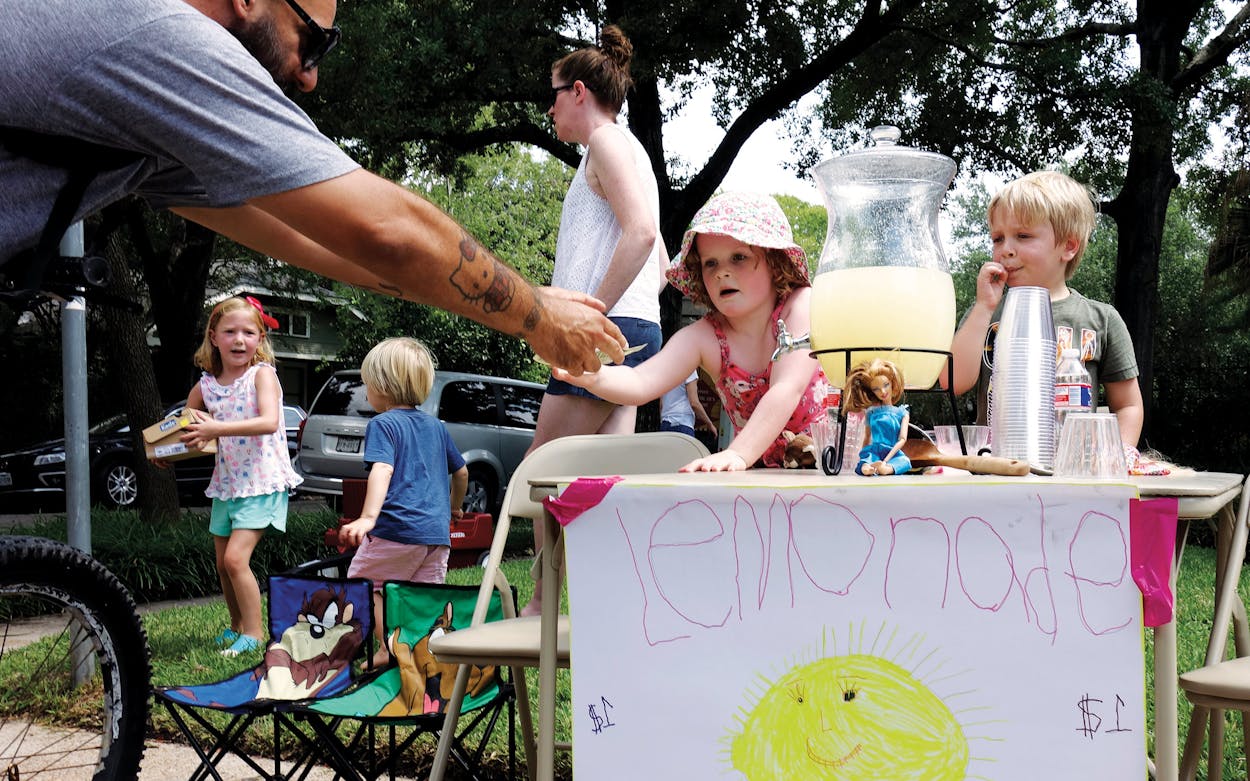There’s long been a rationale for the Texas Constitution mandating that our Legislature meets every other year—only one of four legislatures in the country to do so—and that its sole constitutional duty is to set a two-year state budget: it limits the ability of state government to create knee-jerk law.
So it’s heartening when lawmakers act out of goodness instead of self-interest when it comes to legislation. That happened this week in the Senate when it passed SB 476 by Kelly Hancock, R-North Richland Hills, which would forbid cities from passing ordinances banning dogs from restaurant patios as long as the pet is leashed and not allowed to sit at a table. And it happened in the Texas House of Representatives when it passed HB 234 by Representative Matt Krause, who declared his legislation the beginning of Lemonade Freedom Day.
“This is one small step for lemonade freedom and one giant leap for young entrepreneurs everywhere,” Krause said before his colleagues gave final passage to the legislation, which is now headed to the Senate. Krause told Texas Monthly the issue popped up on his radar when he saw a commercial on TV in which a lemonade manufacturer promised to pay for any licensing requirements that kids came across when opening a lemonade stand.
“I thought, ‘Why are we forcing these kids to get licenses for lemonade stands?’” Krause said. When he dug into it, he was startled to discover that kids’ lemonade stands have long been a staple of Texas summers, but they are illegal under Texas Food Establishment rules, which ban the sales of homemade drinks to avoid health concerns. “Every summer we had all these lawbreakers all across the state,” Krause said.
Then there was the lemonade shot heard round the state. Seven-year-old Zoey Green and her eight-year-old sister, Andria, set up a lemonade stand in front of their home in Overton, near Tyler, to raise money to take their father out to a water park for Father’s Day. Instead, they received a visit from the Overton chief of police who shut down their stand because it lacked the proper permitting.
Krause heard enough and filed the legislation, which was among the first of a handful of noncontroversial bills to pass out of the House this legislative session. Not only does this bill forbid local governmental entities from adopting or enforcing any ordinance involving the sale of lemonade from anyone under age eighteen, it extends that ban to enforcement of any nonalcoholic drinks, such as Kool Aid. To show how serious lawmakers are about this bill, they amended it on the House floor specifically forbidding homeowners associations from banning any such sale.
This action followed some courageous acts of civil disobedience on behalf of lemonade stands by, among others, Texas Land Commissioner George P. Bush, who took a video of himself partaking from an illegal lemonade stand that was set up outside his offices.
Today, a very enthusiastic group of entrepreneurs set up shop to sell lemonade to @txglo employees. I stopped by for a glass (or 2). Thanks to @repmattkrause for taking a stand for #LemonadeFreedom #HB234 pic.twitter.com/EjVKhvLeLL
— George P. Bush (@georgepbush) March 19, 2019
There is growing—and deserved—cynicism surrounding legislative bodies and whether they have the best interests of constituents in mind. But Krause and the 21 co-authors and co-sponsors of this bill, both Republican and Democratic, demonstrated that it’s okay to do something decent in the lawmaking process—in less than 150 words. Not only did it decriminalize an American tradition, it provided a valuable lesson in civics, as young entrepreneurs with their own lemonade stands testified on behalf of the legislation during the committee hearing for this bill.
- More About:
- Best and Worst Legislators
- George P. Bush






